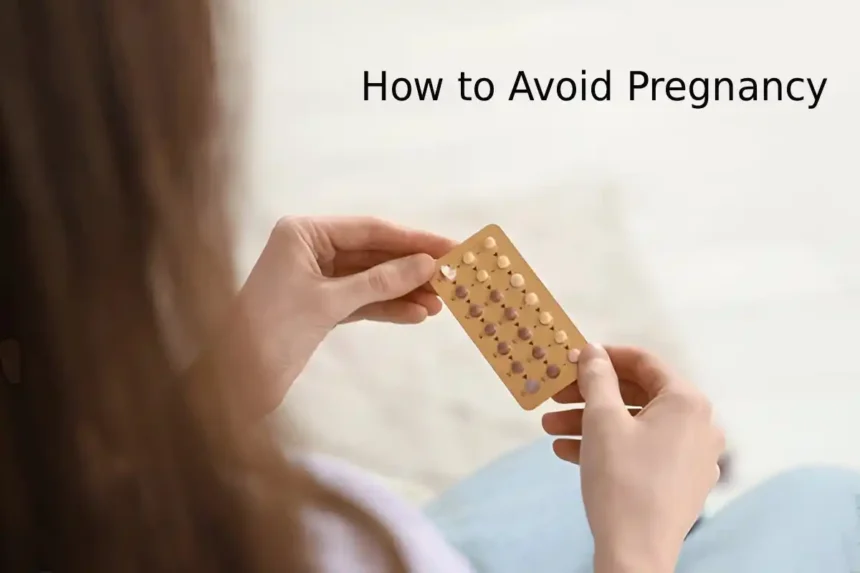Introduction
Avoiding pregnancy is a personal decision for many individuals and couples for several reasons career aspirations, financial preparedness, health considerations, or personal lifestyle preferences. Knowing the safe and effective methods is vital for making the right decision. This beginner’s guide explains diverse ways on how to avoid pregnancy, from natural techniques to medical options, so you can make informed decisions with assurance. The central phrase How to Avoid Pregnancy is naturally integrated within this article for enhanced search visibility.
Why Understanding Pregnancy Prevention Matters
Pregnancy prevention is more than simply averting an unexpected child. It lets you plan your future, maintain emotional and financial stability, and safeguard your health. By understanding your choices, you gain control over when, or if, you want children. This control can support educational goals, assist in managing relationships, and even lessen health risks for those who should not get pregnant for medical reasons.
Natural Family Planning
Natural family planning, also referred to as fertility awareness, is a method where you observe your menstrual cycle to pinpoint fertile and non-fertile days. You can use a calendar or fertility tracking app to pinpoint ovulation days, which usually occur around day 11 to 17 in a standard 28-day cycle. By avoiding unprotected intercourse during fertile days, you can reduce the chance of pregnancy. Though this method does not involve medication or devices, it demands accuracy and discipline, and it may not be as effective for those with irregular cycles.
Barrier Methods
Barrier methods physically block sperm from entering the uterus. The most common choices are male condoms, female condoms, diaphragms, and cervical caps. Condoms also offer the added advantage of providing protection against sexually transmitted infections (STIs). These methods are inexpensive, easy to access, and widely used. However, correct usage is crucial, as condoms can break or slip, and some individuals might experience latex allergies.
Hormonal Birth Control
Hormonal contraceptives work by preventing ovulation or making it harder for sperm to reach the egg. Options include birth control pills, contraceptive patches, vaginal rings, and hormone injections. These methods are highly effective when used consistently and can also assist in regulating periods and reducing menstrual cramps. Nonetheless, they need a prescription and might trigger side effects like mood swings, headaches, or weight gain.
Long-Acting Reversible Contraception (LARC)
For those seeking low-maintenance, long-term solutions, long-acting reversible contraception is a great option. This covers intrauterine devices (IUDs) and contraceptive implants. Hormonal IUDs can last between 3 to 6 years, whereas copper IUDs can last up to 10 years. Implants positioned beneath the skin of the arm are effective for up to 3 years. LARC methods are over 99% effective but need professional insertion and removal.
Emergency Contraception
Sometimes, unprotected sex happens unexpectedly, or regular birth control fails. In such cases, emergency contraception can help. This includes emergency contraceptive pills, which should be taken within 72 hours, and copper IUDs, which can be inserted within five days. While effective as a backup, emergency contraception should not be depended on as a regular method.
Lifestyle and Relationship Factors
Pregnancy prevention is more effective when combined with responsible lifestyle choices. Open communication with your partner about contraception preferences ensures consistency. Education on how each method functions can prevent misuse. Being consistent with your chosen method every time is key to avoiding pregnancy.
Common Myths About Pregnancy Prevention
Many individuals still believe in myths that can lead to unplanned pregnancies. One widespread misconception is that the withdrawal method is entirely safe, but pre-ejaculate fluid can still contain sperm. Another myth is that you can’t get pregnant during your period, but sperm can survive in the body for several days, making pregnancy possible. Some also think that using two condoms gives extra protection, but this can cause friction and lead to breakage.
Choosing the Right Method
The best way to prevent pregnancy depends on your health, relationship, budget, and future family plans. A healthcare provider can guide you through the pros and cons of each method and assist you in choosing one that aligns with your comfort level and needs.
When to See a Doctor
Consult a doctor if you are starting hormonal birth control, considering an IUD or implant, experiencing unusual side effects, or suspect a contraceptive failure. Professional guidance can ensure safe and effective use of any method.
Final Thoughts
Avoiding pregnancy is about making informed choices and using the correct method consistently. From natural tracking to advanced medical options, there’s a solution for every lifestyle. By staying informed, communicating openly, and seeking professional advice when needed, you can take charge of your reproductive health and plan your future with confidence.

